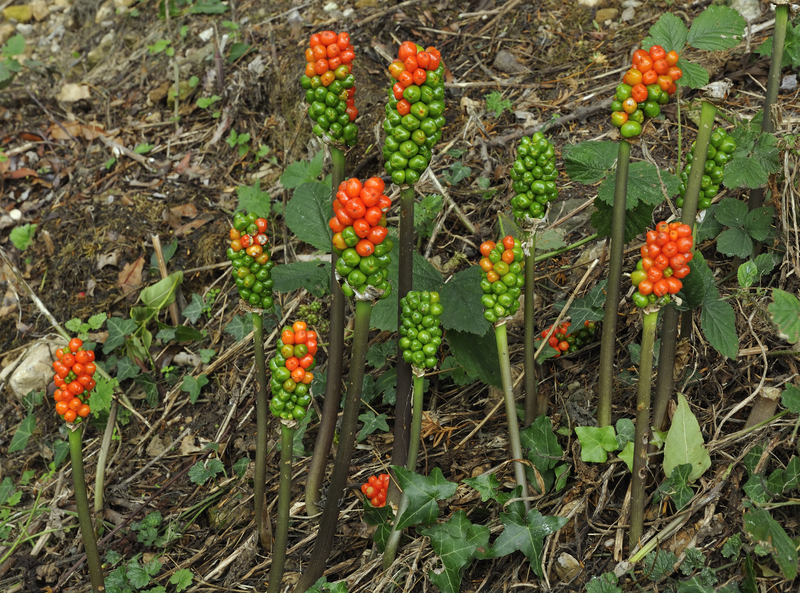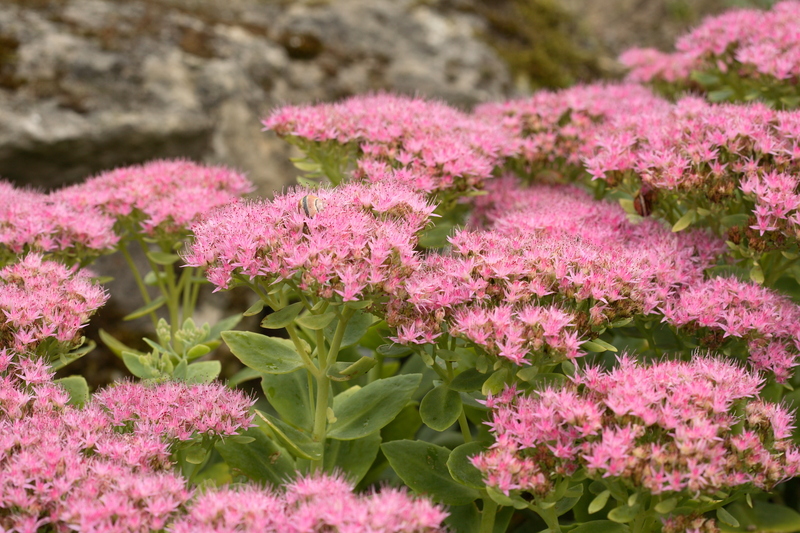Winterizing Your Garden: Keeping Plants Alive
Posted on 14/08/2025
Winterizing Your Garden: Keeping Plants Alive
As the cold winds begin to gust and frosty mornings settle in, every gardener faces one pressing question: How do I keep my beloved plants alive through winter? Properly winterizing your garden is crucial, whether you're nurturing a lush flower bed, a kitchen herb patch, or a productive vegetable garden. This comprehensive guide will walk you through the essential steps to protect and preserve your green space, ensuring it thrives after the thaw. If you want your garden to emerge vibrant in spring, mastering winter garden care is key.

Why Is Winterizing Your Garden Important?
Winter garden preparation isn't just a chore--it's a way of safeguarding your investment of time, energy, and money in your plants. Freezing temperatures, ice storms, and reduced sunlight can all threaten plant health. Without proper protection, many plants--especially tender perennials and young shrubs--may not survive until spring.
- Maintains plant health -- shields roots and foliage from harsh cold.
- Encourages early spring growth -- by protecting plants now, you set them up for success later.
- Saves money -- reduces the need to replace plants that didn't make it through winter.
Assessing Your Garden Before Winter
Planning is the first step in garden winterization. Begin by taking stock of your garden's layout, plant varieties, and their respective hardiness. Here's how to proceed:
1. Identify Vulnerable Plants
- Tender perennials -- such as dahlias, cannas, and geraniums.
- Young trees or shrubs -- with insufficient root structure.
- Container plants -- exposed roots are more susceptible to cold damage.
- Vegetables and herbs -- especially late-season crops and Mediterranean species.
2. Understand Your USDA Hardiness Zone
Each plant has a hardiness rating indicating the minimum temperature it can withstand. Use the USDA Hardiness Zone Map to determine your region's typical lowest temperatures and align plant protection strategies accordingly.
Techniques for Winterizing Your Garden
Now that you understand why and what to protect, let's explore tried-and-true techniques for keeping your garden alive in winter.
1. Mulching: Your First Line of Defense
Mulch acts as a thermal blanket, insulating plants and soil against rapid temperature swings.
- Spread a 2-4 inch layer of organic mulch (like straw, shredded leaves, wood chips, or compost) around the base of perennials and shrubs.
- Bury tender bulbs and roots--dig up non-hardy bulbs and store them in a cool, dry place.
- Avoid piling mulch directly on stems to prevent rot.
Bonus Tip: Mulching also deters overwintering pests and suppresses early spring weeds!
2. Watering Before the Freeze
Many gardeners overlook the importance of hydrating plants before winter. Healthy, hydrated roots are better equipped to survive freezing conditions.
- Give plants a deep watering before the ground freezes.
- Reduce watering during winter dormancy--most plants need less in the cold season.
- For container gardens, ensure adequate drainage to prevent waterlogged soil, which can freeze and damage roots.
3. Pruning: Timing Matters
Pruning can strengthen a plant, but it's vital to do it at the correct time. Never prune plants late in the growing season, as this encourages tender growth that's vulnerable to frost.
- Prune dead or diseased branches after plants go dormant.
- Delay major pruning until late winter or early spring for most shrubs and trees.
4. Protecting Container Plants
Container plants are especially vulnerable because their roots lack the ground's insulating properties. To increase their winter survival odds:
- Cluster pots together to conserve heat. Place baskets against a south-facing wall for extra warmth.
- Wrap containers with burlap, bubble wrap, or commercial plant blankets for insulation.
- Move pots indoors for species that truly can't tolerate frost.
5. Covering Plants: Row Covers and Cloches
Frost can devastate sensitive plants overnight. Using protective coverings can be a game-changer for winter garden survival:
- Row covers/frost blankets--drape over veggies and small crops for protection against light frost.
- Cloche (bell-shaped covers)--individual "mini greenhouses" for special specimens.
- Burlap wraps and windbreaks--shield taller shrubs and trees from drying winter winds.
6. Winterizing Water Features and Irrigation
Don't forget about your garden's hydration system! Frozen water in pipes can cause damage.
- Drain and blow out hoses and irrigation lines before the first hard freeze.
- Store hoses indoors and shut off outdoor faucets.
- If you have a pond or fountain, remove pumps or use a deicer to prevent ice damage.
Winter Plant Care Tips by Garden Type
Winterizing Vegetable Gardens
- Harvest remaining crops before the first hard frost.
- Plant cover crops (green manure) such as clover or winter rye to protect and enrich soil.
- Mulch exposed beds to prevent erosion and reduce weed growth.
Caring for Perennial & Flower Beds
- Cut back perennials only after their foliage has died down.
- Divide and replant overcrowded perennials in early fall for better root establishment.
- Leave some seed heads standing--for wildlife and winter garden interest.
Protecting Trees and Shrubs
- Wrap young tree trunks to prevent sunscald and rodent damage.
- Apply a layer of mulch around the base, but keep it away from the bark.
- Water deeply before the ground freezes, especially evergreens.
Ornamental Grasses and Landscape Plants
- Leave ornamental grasses standing over winter for texture and bird habitat.
- Cut back in early spring rather than fall.
Special Considerations: Climate and Microclimates
Not all gardens face identical threats in winter. Microclimates--areas that are warmer or cooler than the surrounding landscape--can offer opportunities for winter plant protection:
- Plant tender species near south-facing walls to capture radiant heat.
- Use fences or hedges as windbreaks to reduce exposure for sensitive plants.
Regions with Heavy Snow
- Snow can insulate plants, but heavy build-up on limbs can cause breakage.
- Gently brush snow off branches, but don't try to remove ice--let it melt naturally.
Milder Climates
- Watch for mid-winter thaws--mulch may be less necessary, but sudden warm-cold cycles can still stress plants.
- Stay vigilant for fungal diseases in damp, mild winters (good air circulation is vital).
Common Mistakes to Avoid When Winterizing Your Garden
- Applying mulch too early -- wait until the ground freezes to avoid attracting rodents.
- Pruning in late fall -- can encourage tender regrowth.
- Overwatering -- water less as plants enter dormancy.
- Leaving debris and diseased material -- clean up plant litter that could harbor pests and pathogens.
- Neglecting container plants -- pots can freeze faster than in-ground plants.
Eco-Friendly Approaches to Garden Winterization
Environmentally conscious winterization methods can benefit both your garden and the planet:
- Use natural, biodegradable mulches like leaves, straw, and untreated wood chips.
- Leave some leaf litter and stems for pollinators and beneficial insects overwintering.
- Eschew chemical sprays -- encourage ecosystem balance for natural pest control throughout winter and into spring.
Setting the Stage for Spring
A well-winterized garden wakes up healthy, vibrant, and ready to put on a show next season. Good winter plant care saves time and trouble when the growing season returns. Early spring tasks (like pruning, feeding, and dividing plants) will be easier and more effective if you finish your winter prep carefully.
Final Checklist for Winterizing Your Garden
- Assess and prepare all vulnerable plants.
- Mulch, water, and protect as recommended.
- Store tools and irrigation system parts.
- Clean up debris and compost plant material (unless diseased).
- Note successes and challenges for next year's planning.
Remember: Winterizing your garden is more than a to-do list. It's an act of stewardship that pays lasting dividends, ensuring you enjoy robust growth, vibrant blooms, and bountiful harvests come spring. Take these mindful steps--and your garden will repay you with beauty and resilience every year!

Frequently Asked Questions About Winterizing Your Garden
What's the best time to winterize your garden?
Start preparing your garden after the first hard frost, but before sustained deep freezes set in (usually late fall). Timing may vary depending on your region and plants.
Can I still plant in late autumn?
Many bulbs and some perennials benefit from late autumn planting--these cold-hardy plants can establish roots before deep winter and bloom spectacularly in spring.
Should I cover all my plants?
Not necessarily. Native and fully hardy varieties generally don't need extra protection. Focus efforts on tender, young, or container-grown plants.
Is it OK to leave fallen leaves on garden beds?
Moderate layers of leaf litter can insulate soil and benefit beneficial insects. However, remove thick, matted leaves to prevent rot and fungus on lawns and tender plants.
Conclusion: Keep Your Garden Thriving All Year
Winterizing your garden is the ultimate act of garden care and preparedness. By mulching, watering, protecting, and making strategic choices, you protect your plants' health and beauty for future seasons. With the tips and practices outlined above, you're well on your way to keeping your plants alive--and thriving--through the harshest winter months.
For more gardening advice and seasonal tips, be sure to bookmark this article and revisit every autumn. Your garden will thank you!
Latest Posts
Elevate Your Outdoor Space with Minimalist Zen Garden Design Techniques
Innovative Low-Maintenance Gardening without Breaking the Bank
Empower Climate Action with the Simple Act of Gardening

